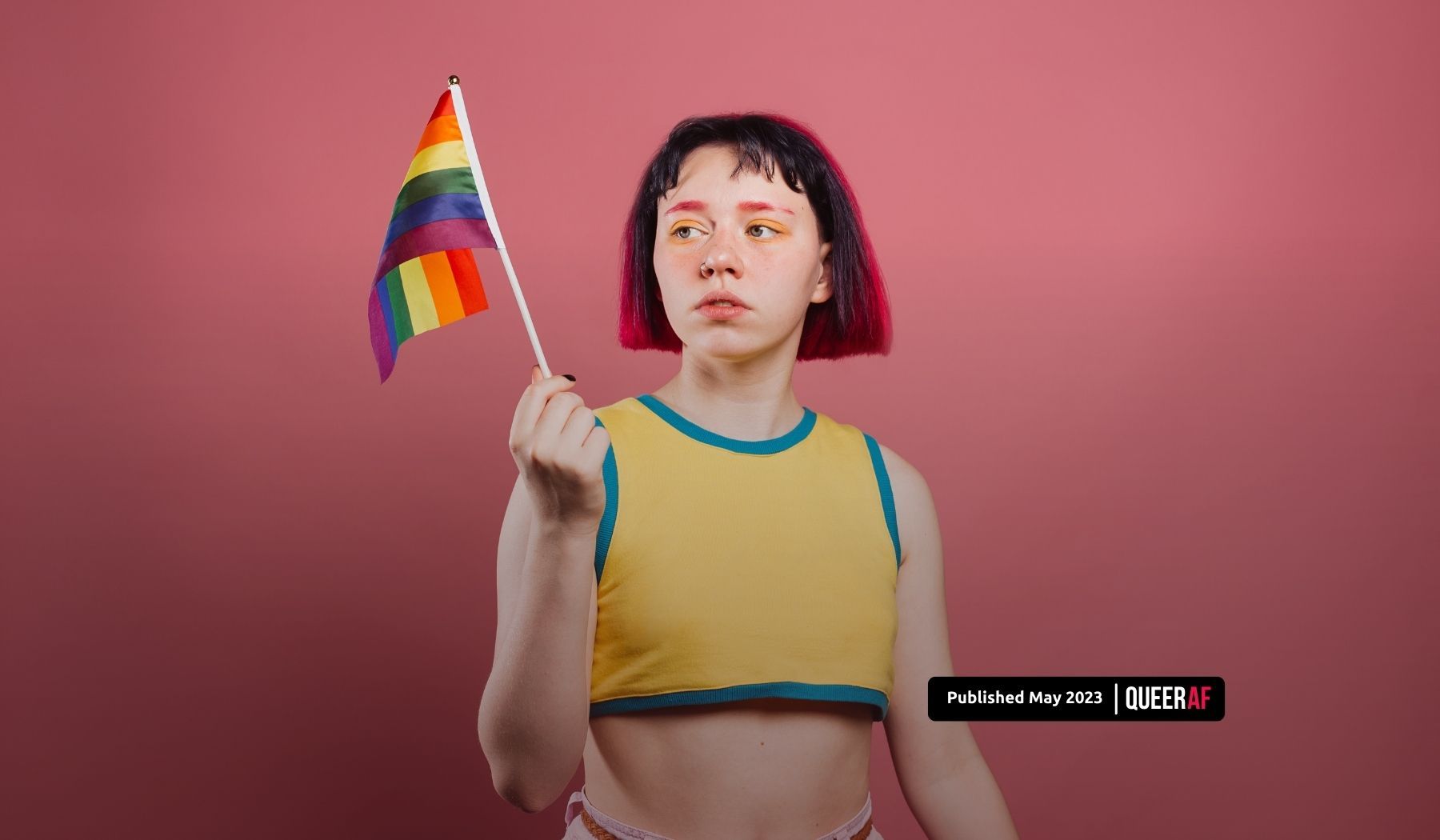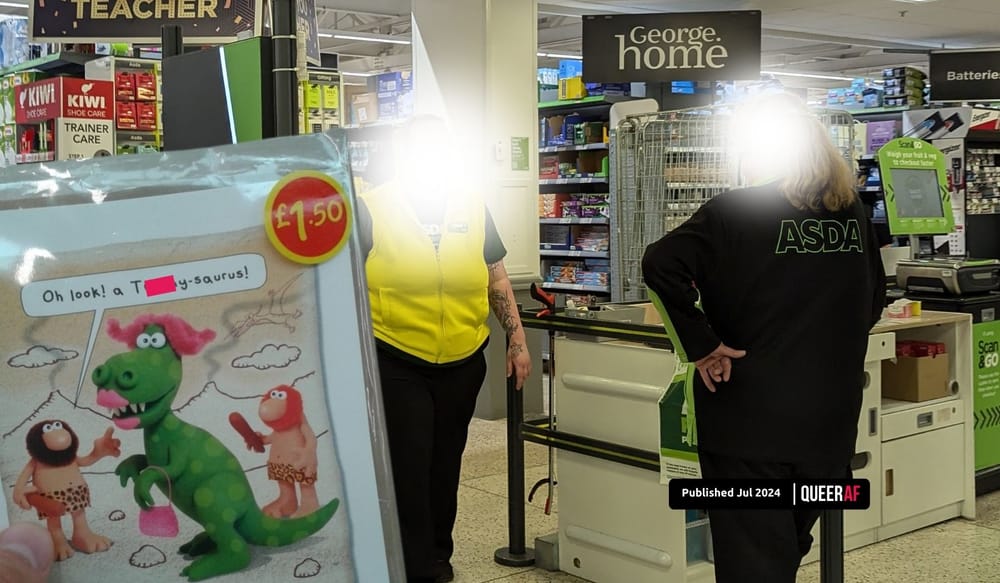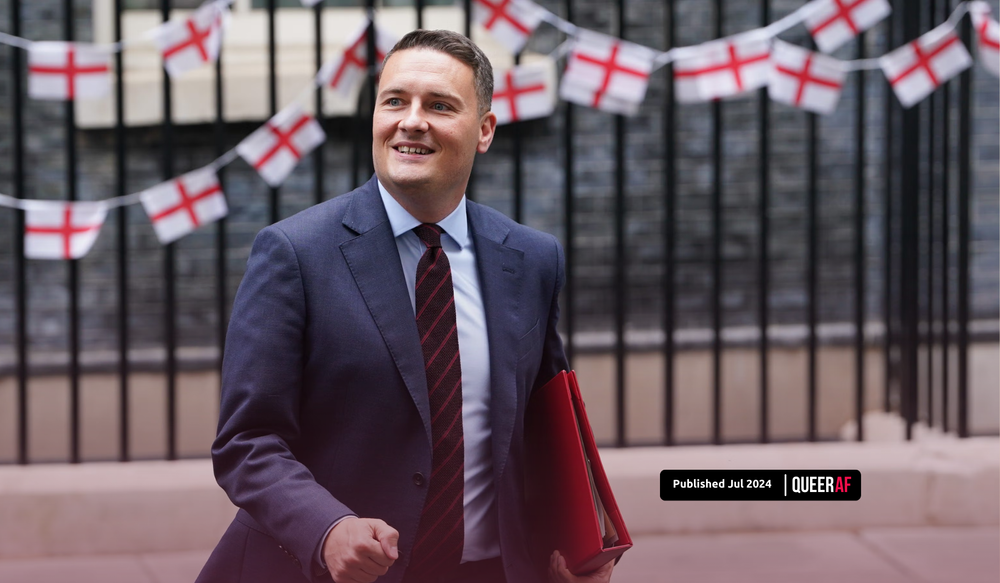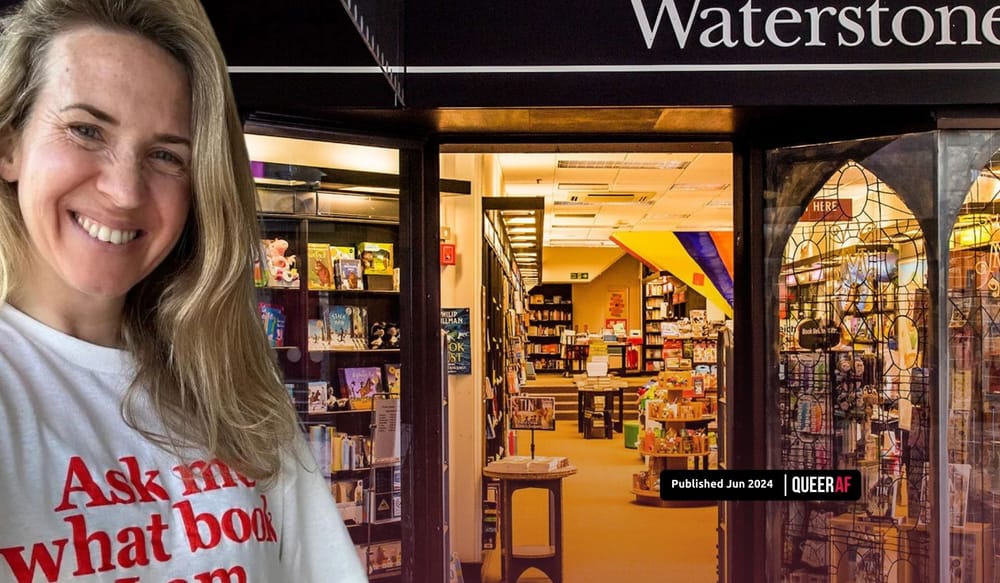TL;DR: As we continue to hear anti-trans rhetoric and LGBTQIA+ prejudice daily from the government and media, new research has exposed a growing mental health crisis among young LGBTQIA+ people.
The UK has a growing and "widespread" mental health crisis among young LGBTQIA+ people, according to new research.
The young LGBTQIA+ people's charity Just Like Us released new research ahead of its Positive Futures report release. The figures are stark.
It found the queer community was facing much higher rates of suicidal ideation, self-harm and mental health issues - which was particularly acute in the transgender and non-binary community.
LGBTQIA+ young adults are more than twice as likely to self-harm
Just Like Us surveyed 3,695 adults aged 18 to 25.
It found that LGBTQIA+ young adults are three times more likely to face a mental health condition than their straight counterparts (42% compared to 14%).
Meanwhile, more than seven in ten (74%) of queer young adults have experienced suicidal thoughts or feelings.
This was even higher for trans and gender-diverse young folk: nine in ten (88%) consider suicide, and more than seven in ten (76%) have self-harmed.
It also found that LGBTQIA+ young adults were more likely to drink and smoke.
How to solve the LGBTQIA+ mental health crisis
The Trevor Project, which mirror's Just Like Us's work in the US, also released its annual look at how young LGBTQIA+'s mental health is fairing this week.
It’s findings were broadly similar: 41% of LGBTQ young people in the US had seriously considered suicide in the past year. It also found that young people who are transgender and non-binary reported higher rates than their peers.
But, crucially, this research also found that transgender and non-binary young people who reported that the people they live with respect their pronouns had lower rates of attempting suicide.
And those transgender and non-binary young people who found their school to be gender-affirming - roughly half - also reported lower rates of attempting suicide.
Analysis: The knock-on effect of anti-LGBTQIA+ narratives
“It is no surprise that living in a society that often fails to support LGBTQIA+ young people, and can even be actively anti-LGBTQIA+, takes a toll on their mental and physical health.”
— Amy Ashenden, Interim CEO of Just Like Us
When the media debates queer people's rights. When politicians repeat anti-trans dog whistles. When comedians punch down on our lives. It has an impact.
It's not always tangible, or direct, but a growing set of figures is showing the trickle-down and long-term impact this has on our country, health and economy.
Hate crimes against LGBTQIA+ people have risen 348% in the last six years, putting greater strain on tight Police budgets.
The mental health crisis among young queer people is increasing the pressure on already struggling NHS services – both in the short and long term, as the trauma caused by these experiences can last a lifetime.
A young person’s life or health can never be reduced to a figure on a balance sheet. But in the midst of a cost of living crisis, it's worth reflecting on how much hate costs the country: billions of pounds.
I'll repeat that. The government's 'culture war' tactics, designed to distract us from the economy they broke, are costing us even more - while young people's health and futures are thrown under a bus for clicks, votes and headlines.
Call the UK Samaritans anytime if you’re struggling on 116 123, or Switchboard LGBT+ 10am-10pm 0800 0119 100

Are you QueerAF's next editor?
We believe our audience is our most valuable editor.
When we commission content, it's not based on what we think is a good idea.
It's based on what over 150 members have said they want to see their money used for. It's a different way of doing media; you're in control.
QueerAF membership gets you early access to content, the chance to directly commission an article, see your name next to the content you fund.
And if you support us in the same way Ioannis Ntanos, who directly funded this edition of the newsletter - we'll spotlight you as an honourary editor.
You'll also join a growing community of members who want to change the media by supporting LGBTQIA+ creatives' careers - get involved now.












